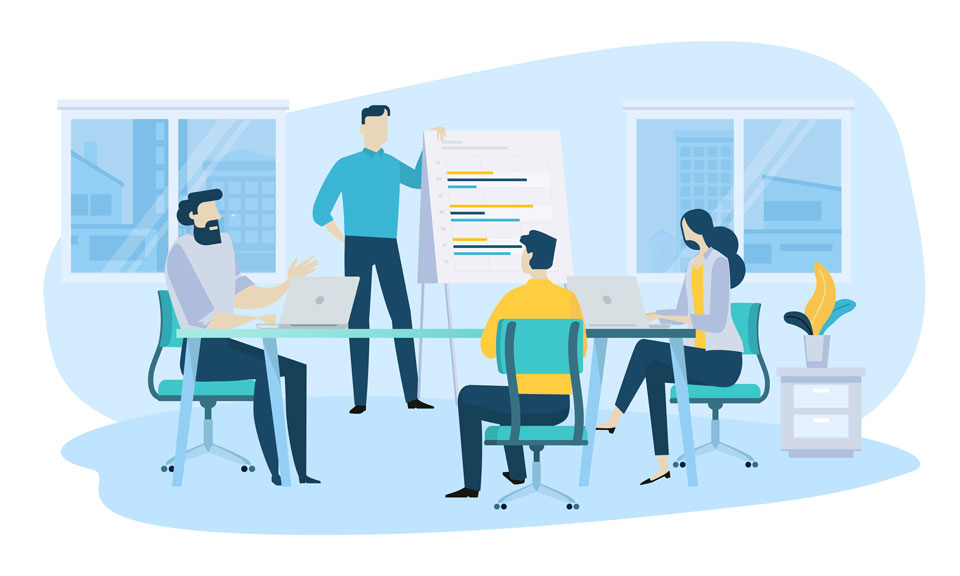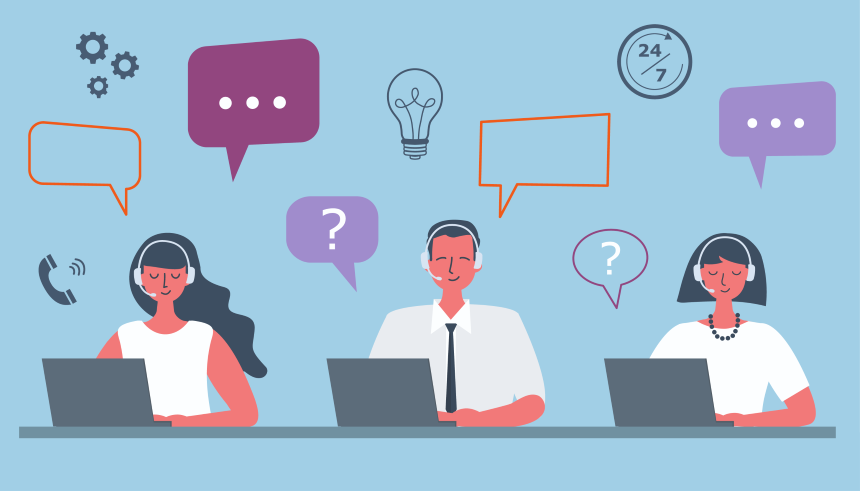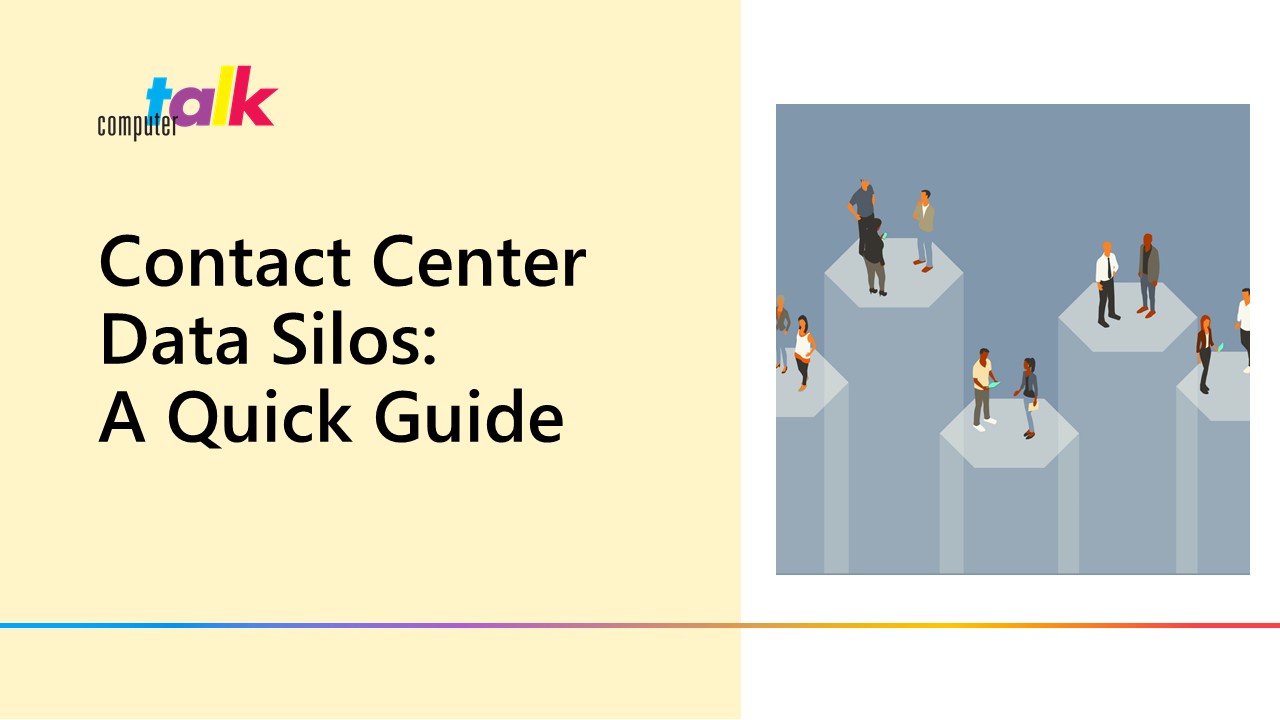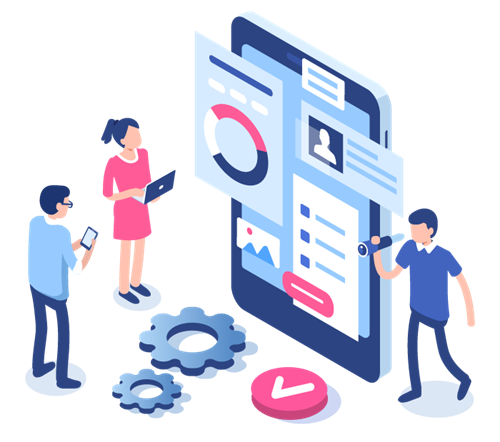Featured
Top 10 Training Methods to Increase Agent Productivity and Customer Experience
Published On May 18, 2021 | Last Updated March 6, 2025

Contact centers are the direct point of communication between you and your customers. They influence the perception of your organization and play a role in customer satisfaction with your product or service, directly influencing if customers are going to recommend you to others.
It’s important to invest the proper attention and resources into your contact center to ensure agents are communicating with customers in a way that reflects your organization’s beliefs and values. After all, customer satisfaction, loyalty, and conversions are directly impacted by customer service.
Through leveraging your contact center operations, you can drive customer engagement, increase customer loyalty, and optimize efficiencies. In the blog post, 10 Essential Contact Center KPIs to Monitor for Agent Productivity & a Positive Customer Experience, we discussed some metrics that could be improved through agent training. Some of the common inefficiencies in your contact center can be resolved through proper agent training and tools.
In this blog post, we will discuss the top 10 training methods to build an exceptional contact center.
What is agent training?

Agent training is any course, e-learning, coaching session, or activity that teaches a skill or behavior essential to the contact center’s success. This type of learning can be individual, with a manager, peer, or a small group.
Training can focus on the product or service; the organization’s mission, vision, and values; or the contact center software. It’s important to give new agents comprehensive training on the product or service to provide the correct information to the customer. Emphasizing the mission, vision, and values of the organization will ensure agents reflect the organization in a positive light. Contact center software training provides agents with the knowledge on how to efficiently use the tools to communicate effectively with customers.
While product and technical knowledge are important, many business leaders forget to train their agents on soft skills. While skills like empathy, active listening, communication, and problem solving may come as second nature for seasoned agents, new
agents need proper training to build these skills.
Training methods to maintain a positive customer experience

While many factors contribute to the customer experience, service and support have the most significant overall impact. There are many ways that contact center agents can add value to the customer experience, such as providing product knowledge, quickly resolving issues, and building a strong relationship with the customer. Below are 5 ways you can train your agents to provide a seamless customer experience.
1. Refresh new and seasoned agents on contact center etiquette
It’s important for contact center agents to treat customers respectfully and amicably. While this may seem obvious to a contact center manager, it’s important to recognize that these skills become second nature after working in a call center for many years. New contact center agents, and even seasoned contact center agents, should be reminded to treat customers with respect. Frustrated customers may sometimes be rude or disrespectful, but it’s essential your agents maintain a positive attitude and not take it personally.
Contact center etiquette could include standard greetings, how to transfer a call appropriately, communicating wait or hold times, and how to end the conversation.
Contact center managers should create a general script for new agents or as a refresher for seasoned agents with responses to common questions and points to convey when talking to a customer. Proper call center etiquette will significantly improve the customer experience.
2. Educate new agents on the mission, vision, and values of your business
Contact center agents are communicating with many customers daily. Educating your agents on your mission, vision, and values is vital to ensure they are correctly portraying your business.
It is also essential for agents to understand their role in achieving business goals and their overall impact on the organization to build internal motivation. Communicating this information can be done through videos or a presentation from business leaders to new contact center agents.
3. Introduce the team and gather top agents to assist with the training process
It’s important to foster a collaborative team dynamic between agents to encourage them to work together to solve customer problems and reach team performance goals. Introducing the team to new agents and setting aside time to learn what each person does, or specializes in, can help new agents understand who to go to for specific questions.
Bringing in top agents to assist with training can help new agents establish best practices and techniques to thrive in their role. New agents can listen to top agents’ interactions to learn best practices. Overall, a contact center agent equipped with the proper resources and peers provides a better experience for the customer.
4. Implement a buddy system
A buddy system is a great way to introduce new agents to the team while learning from a seasoned employee. Agents can listen to live calls through the silent monitoring tool, learning in real time how agents address customer concerns and how to utilize the tools properly. Agents can also listen to recorded calls to learn how to handle particular situations. The buddy system can also encourage information sharing, such as tools or resources to help each other answer common questions.
5. Employ practical training methods
Training methods such as role-play and practice sessions can be very beneficial to contact center agents. Through practical training, new hires and leaders can work together to identify areas of improvement and strengths, ultimately enhancing the experience for the customer.
Additionally, providing agents with the opportunity to use the product or service can also improve the agent’s product knowledge, providing better information to the end customer.
Training methods to improve agent productivity and optimize efficiencies

The best way to improve agent productivity is through training. Not only is it essential to train new agents, but it’s important to invest in continuous training to refresh seasoned agents and provide updates on the product/service. Through investing in agent training, you can optimize the efficiency of your contact center. Below are 5 ways you can train your agents to improve productivity.
1. Provide software training for contact center agents
Enabling agents with the proper tools to use the contact center software directly correlates to agent productivity and efficiency. Agents should go through appropriate software training to learn how to answer calls, transfer between departments, escalate a call, and learn any other features that will help them communicate with customers.
Contact center software training may be provided through an e-learning platform or with a training specialist. Engaging in live training is great for asking questions and getting accustomed to the software. E-learning is a great tool to learn new software at your own pace or refresh your skills. The best contact center software training combines both live training and e-learning to learn from an expert and practice on your own time.
2. Set clear objectives
Setting clear objectives for your contact center agents is vital for building motivation and professional development. Objectives should be attainable and measurable and should be re-evaluated at least every quarter. Some examples of objectives for contact center agents include meeting average wait times, reducing average resolution time, minimizing missed calls, meeting average service level targets, and optimizing handle time. You can set these targets within your contact center software and measure performance against them using thresholds. A clear plan to reach these objectives is also essential to ensuring the contact center agent has the necessary resources and tools to achieve their goals.
3. Provide regular feedback
Providing regular feedback to your contact center agents is crucial to their growth and success. Through observing calls and monitoring the queue and statistics dashboard, you can provide constructive feedback to contact center agents and identify areas where they may be struggling. This can give a better understanding of where they need more tools, resources, or assistance to ultimately improve the contact center experience.
4. Use dashboards to monitor agent performance
Through your contact center software, you can easily set up dashboards that monitor the performance of various agents and queues. By setting up employees with their performance dashboard, they can have insight into their performance and reach out to their buddy, peers, or leader on how to improve.
5. Offer incentives to your agents
Creating incentives for your agent is an effective way of increasing motivation. Incentives can generate a healthy sense of competition and thus increase productivity and discourage absenteeism. Simple incentives such as a “kudos” program to recognize your peers for their accomplishments or individual or team performance targets can boost morale and increase motivation.
Summary
Overall, well-trained agents display higher morale and less absenteeism and become better leaders. Contact center agents are the direct line to your customers and can affect the opinion customers have about your organization and your product or service. Investing in the proper training for your contact center will lead to a more productive contact center and happier customers.
If you’re interested in learning more about how to improve productivity and customer service within your contact center, check out our latest blog post — Contact Center Data Silos: A Quick Guide
More from our blog
 A 2022 Gartner publication identified some of the top customer service challenges that organizations expect to face. Learn how ice Contact Center can help organizations address these challenges.
A 2022 Gartner publication identified some of the top customer service challenges that organizations expect to face. Learn how ice Contact Center can help organizations address these challenges.
 In a world that's constantly evolving, so are we. We're kicking off the new year with a rebrand, and we're super excited to share what’s new!
In a world that's constantly evolving, so are we. We're kicking off the new year with a rebrand, and we're super excited to share what’s new!
 Data silos are a well known issue in the contact center world, but new software solutions can help.
Data silos are a well known issue in the contact center world, but new software solutions can help.


